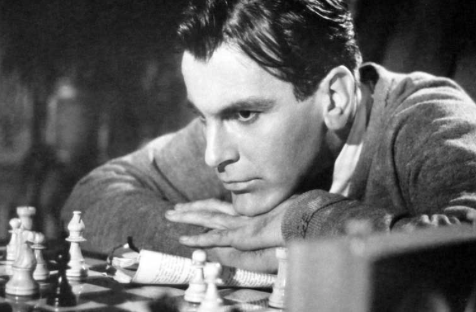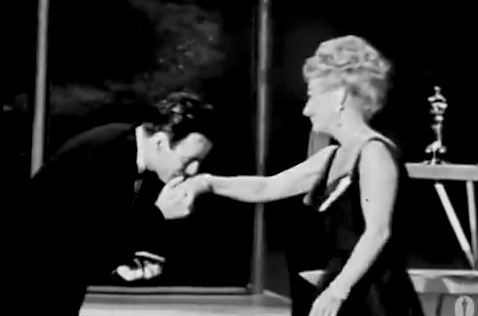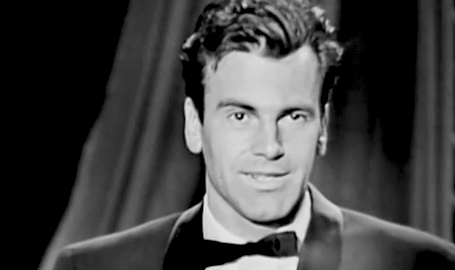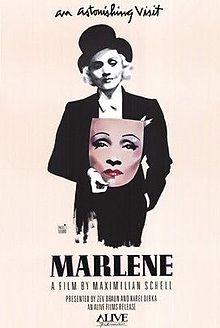Maximillian Schell (1930-2014)
 Saturday, February 1, 2014 at 11:08AM
Saturday, February 1, 2014 at 11:08AM The most famous Austrian born actor prior to Schwarzenegger, and Oscar's favorite Austrian/Swiss actor ever, died overnight at 83. Maximilian Schell film debut came with the German anti-war film Kinder, Mütter und ein General (Children, Mother, and the General) but it wasn't long before Hollywood came calling.

He won a role supposedly through a misunderstanding/accident in the Brando/Clift vehicle Young Lions (1958). Global fame was just a few years away when he co-headlined the mega-star cast of the seminal Oscar Bait giant Judgement at Nuremberg (about Nazi war crime trials) with Hollywood legend Spencer Tracy and they were both were nominated for Best Actor - it's a oft-repeated fallacy of modern Oscar campaigning that people say that splits your vote and prevents you from winning; see also Amadeus. Schell also won the Golden Globe for that film. (As Rhett from Dial M for Movies pointed out on Twitter this morning, his death makes William Shatner (!!!) the sole surviving credited cast member from the courtroom classic)
Schell was quite gracious in his Oscar win and his acceptance speech is well worth watching. I'd argue he was fully aware of why he won ("honoring the movie"*) and I love that he doesn't do just the usual cheek kiss but actually a little bow/handkissing...as diva Joan Crawford warrants.


Schell had a fine and long run as an actor with two more nominations following his win for The Man in the Glass Booth (1975) and Julia (1977 -- and yet another example of a double nomination in the same category. His co-star Jason Robards won that time). He won his second Golden Globe as recently as 1994 for a TV miniseries and a Lifetime Achievement Bambi in Germany just 5 years ago, which coincidentally was the same ceremony wherein Christoph Waltz, a clear modern equivalent of Austrian/Oscar love, won for Inglourious Basterds.
 Schell's talents were many, though, and also behind the camera. He turned to filmmaking within a decade of winning Best Actor. His first two feature films First Love (1970) and The Pedestrian (1973) were both nominated in the Best Foreign Language Film category for Switzerland and West Germany respectively. And then his first documentary Marlene (1984) which was about his legendary Nuremberg co-star, was also nominated in its category. That's a lot of awards love and a long and full career worth remembering.
Schell's talents were many, though, and also behind the camera. He turned to filmmaking within a decade of winning Best Actor. His first two feature films First Love (1970) and The Pedestrian (1973) were both nominated in the Best Foreign Language Film category for Switzerland and West Germany respectively. And then his first documentary Marlene (1984) which was about his legendary Nuremberg co-star, was also nominated in its category. That's a lot of awards love and a long and full career worth remembering.
*Judgement at Nuremberg couldn't really win much elsewhere. 1961 was the year of one of Oscar's true phenomenons. West Side Story made nearly a clean sweep of its nominations winning 10 of its 11 Oscar nominations! Nuremberg only bested it in the Adapted Screenplay category where musicals have historically had a very hard time winning. Only two have ever managed: Going My Way (1944) and Gigi (1958).


